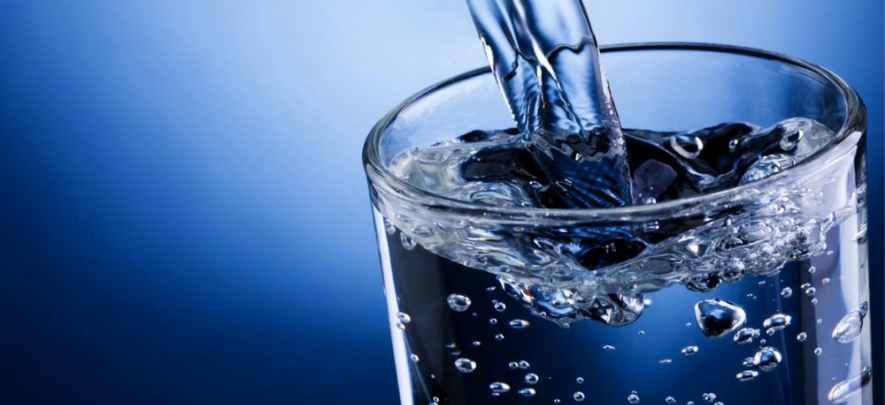A guide on when and how much water we should drink

Health & Lifestyle
208 week ago — 6 min read
In this article, I share how bringing small changes in the way we consume water can have a mysterious impact on your health and wellbeing. We will cover the following points in detail, how often, how much, when, and at what temperature to drink water.
How often should we drink water?
For the water we drink to be effectively absorbed, we suggest a continual hydration procedure. We aim to take small sips of water at least every 30 minutes instead of drinking a large volume a few times throughout the day. Drinking small amounts of water keeps the body hydrated, accelerates the body's detoxification process, increases your energy levels, improves digestion, and generally results in a greater overall sense of wellbeing.
How much water should we drink?
We have heard the suggestion to drink eight glasses of water a day to avoid being chronically dehydrated and have set a goal. To attain, we often drink 2 or 3 glasses of water in one sitting to stay on target. This high-volume hydration approach (also known as “chugging”) is less productive as our body isn’t capable of absorbing large volumes of water in a short period, which results in the water running right through you, depriving you of the benefits of proper hydration.
We suggest setting automatic alerts on your smartphone that remind you to take a few sips of water every 30 minutes to enjoy the benefits of the continual hydration approach.
The high volume hydration approach is generally due to our lifestyle tends. We suggest setting automatic alerts on your smartphone that remind you to take a few sips of water every 30 minutes to enjoy the benefits of the continual hydration approach. The reminders may be annoying for the first couple of days, and after a couple of days, they will make your new hydration regime a habit, and your body will become accustomed to taking a few sips of water every 30 minutes.
While drinking eight glasses of water a day to avoid being chronically dehydrated, be a guideline or rule of thumb, but it does not apply universally. To stay hydrated, we need to drink enough water to replace the water we lose daily through perspiration, excretion, and other bodily functions. The ideal water intake will vary from person to person and depend on a variety of factors and the environment in which they conduct their activities.
Our bodies are very good at discovering when they are becoming dehydrated by signaling through the sensation of thirst. Few other indicators to determine dehydration are constipation, little to no sweat, and urine colour.
Also read: Let food be your medicine: Diet for disease prevention
When to drink water
As per Ayurveda, we should hydrate first thing in the morning by drinking water as, during the night, our bodies are engaged in detoxification, which is explained by our need to use the bathroom first thing in the morning. We should assist our body in flushing out accumulated toxins by drinking water immediately after waking up; it also reduces drowsiness and makes it easier for us to start our mornings with energy.
We need to be mindful of when we are drinking water corresponding to the timing of our meals. We should hydrate at least 30 minutes before a meal or 2 hours after eating as it ensures that our digestive system works efficiently as it hydrates your stomach’s lining, which will make it easier to produce enough stomach acid to digest your meal properly and also help in preventing overeating and feeling thirsty after a meal.
The temperature of drinking water
It is to be mindful to drink the water at room temperature rather than cold water, or better to have lukewarm before the meal. The logic for this is that cold water is even more likely to douse the digestive fire that builds up in our stomachs and can also freeze the enzymes and fluids in your gut preventing, your body from properly digesting food. Also, drinking cold temperature water can cause the narrowing of blood vessels, which may further increase the possibility of toxins not eliminated through your lymphatic system, which is responsible for getting rid of toxins. The narrowing of blood vessels can also prevent the proper circulation of blood throughout your body, thereby reducing the delivery of nutrients through your body.
Contrariwise, drinking water at room temperature or lukewarm supports the lymphatic system, helping more toxins be expelled from the body. It flushes the lymphatic system, dilates, cleanses, hydrates deep tissues, and heals and repairs the digestive system.
Drinking water at room temperature or lukewarm can be important for women during menstruation because cold water can reduce circulation in a manner that weakens the reproductive organs.
Of course, this isn’t to say that you can never enjoy drinking cold water. Coldwater can be okay provided that you relish it in moderation and at least 2 hours before any meal.
Note: Information in this article is not intended or implied as a substitute for professional medical advice, diagnosis, or treatment.
Also read: How to cleanse your liver naturally?
To explore business opportunities, link with me by clicking on the 'Connect' button on my eBiz Card.
Image source: shutterstock.com
Disclaimer: The views and opinions expressed in this article are those of the author and do not necessarily reflect the views, official policy, or position of GlobalLinker.
Network with SMEs mentioned in this article
View [Removed User] 's profile
Most read this week
Trending








![[Removed User] [Removed User]](https://gl-m.linker-cdn.net/nouser.jpg)



Comments (2)
Share this content
Please login or Register to join the discussion